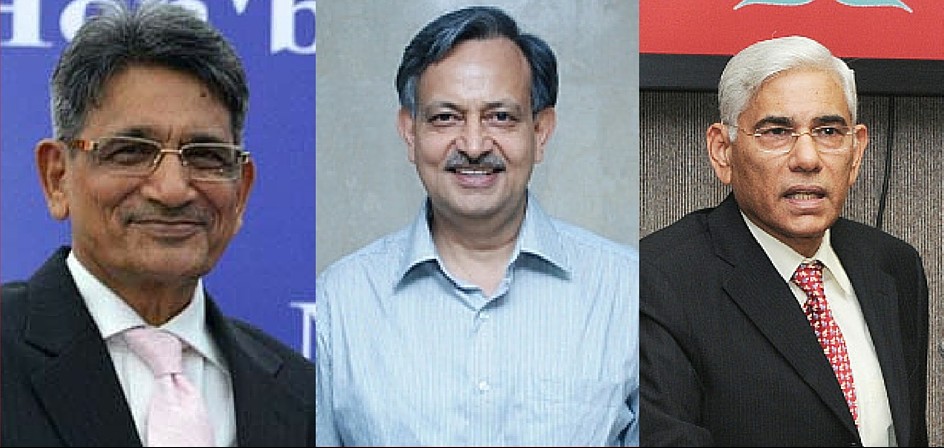
In a historical judgement,the Supreme Court of India has appointed a three member comittee headed by Former Chief Justice of India RM Lodha to oversee the functioning of the Medical Council of India (MCI). The MCI is the chief regulator of the medical profession and education in India. Other members of this committee apart from RM Lodha include Prof. (Dr.) Shiv Sareen (Director, Institute of Liver and Billary Sciences, New Delhi) and Vinod Rai (former Comptroller and Auditor General of India).
Key Takeaways
The Lodha Committee has been given tremendous oversight and authority
1. A notice explaining details of the Lodha Committee would be issued within two weeks from set date.
2. The Committee would be given all facilities to function, and remuneration for the Committee would be fixed upon consultation with them.
3. Lodha Committee would have complete authority to oversee all statutory functions under the MCI Act.
4. All policy decisions of the MCI will need approvals from the Committee.
5. The Committee would be free to issue any remedial directions.
6. The Committee will continue functioning till the Centeral Government puts in place mechanism best suggested by the Expert Committee Report.
7. The Committee will function for 1 year, unless a suitable mechanism is brought in earlier by it.
Why regulate the MCI?
The court order states that the regulaion and Committee overseeing the MCI doesn’t come as a shock. With earlier committees being formed to adress proper functioning of the regulatory mechanism, this isn’t the first time the MCI has been subject to function under the authority of a temporary committee.
This isn’t the first time the Central Government has appointed a team of experts to regulate admissions and fee structure. In 2014,a group of experts headed by Dr. Ranjit Roy Chaudury was appointed by the Central Government on July 7, 2014 to study the Indian Medical Council Act (1956) and make recommendations. This committee gave its recomendations in September the same year suggesting reforms to ‘regulatory oversight of the medical profession by the MCI’.
More recently, the Parlimentary Standing Committee on Health and Family Welfare in its 92nd report presented to the Rajya Sabha on March 8, 2016 also reported ‘an urgent need to review the regulatory mechanism’ of the MCI. Upon review of the MCI’s existing architecture the following shortcomings were found – lack of managing mandated responsibilities, depleted quality of medical education in the country, inability to produce professionals to handle the country’s health needs to name a few.
Additonally, it was noted that medical graduates were unprepared to handle PHCs even at the district level and were inadequately prepared to handle basic health care tasks. Unethical practices and lack of any serious healthcare reforms were also pointed out. The MCI has also been seen as lacking professional excellence and ethos. Nominees of the central and state governments were from corporate hospitals which had commercial motivations. These individuals were also found to be violating ethical practice guidlines by carrying out unnecessary diagnostic tests and surgical procedures to extract money from patients. Elections conducted by the MCI were attracting professionals who were not fit for the regulatory body. A better method would be to conduct an independent selection process where the right candidates could be elected.
Holding MCI Accountable
The Lodha Committee concurred with the recommendations of the Ranjit Roy Chaudhury Committee Report filed in 2014. To begin with it states that the MCI should be run by individuals selected via transparent elections and not via nomination. The government should have full power to give policy directives to the MCI. The SC in its ruling also pointed out further shortcomings and solutions-
a. An archaiac system of graduate medical education that needed reinventing.
b. Unsatisfactory admission process followed in private colleges where seats were being alloted for capitation fees, thereby keeping out meritorious and underprivileged students.
c. The CET would tackle the issue of capitation fees and bring about transparency.
d. Sale of PG seats due to a lack of transparent and streamlined process was rampant.
e. Lack of teaching faculty and regulation of professional conduct of doctors.
f. Current system of inspections were also found to be unsatisfactory
In light of these points, the SC has directed the MCI that speedy action be taken to amend the statue and enact a new legislation in order to enable efficient and transparent functioning. The Constitution Bench at the Supreme Court comprising of Justices AR Dave, AK.Sikri, RK.Agarwal, AK Goel and Banumati has also directed the Central Government to consider and take further appropriate action on the Ranjit Roy Chaudhury Committee Report.
Image Credits: The Hindu, NDTV, Indian Express

